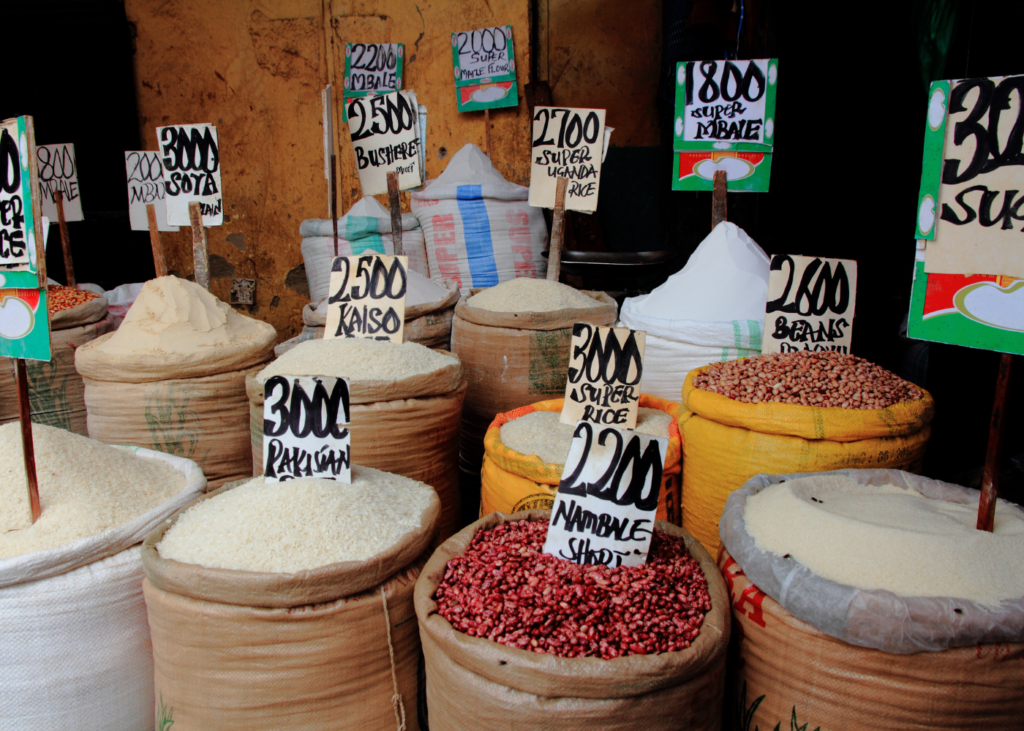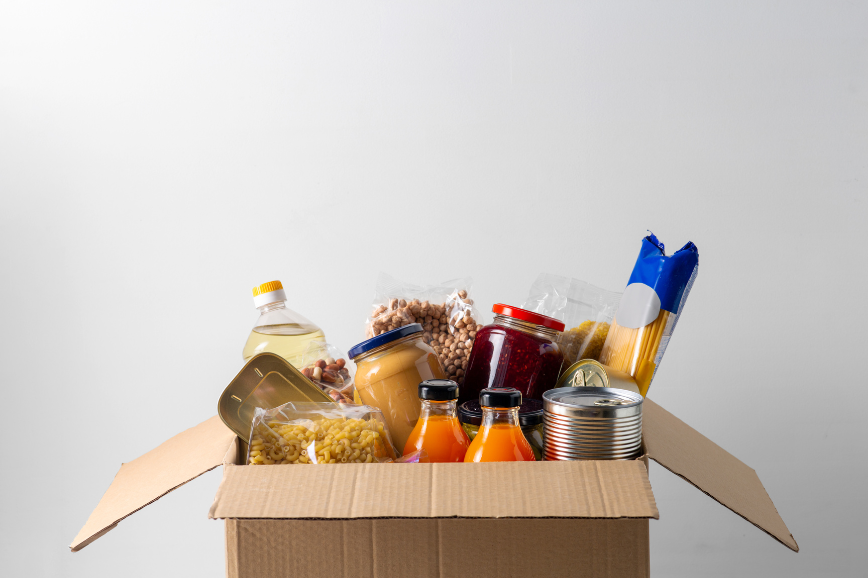How to Start a Food Supply Business in Nigeria and Make Money Fast
Are you passionate about food and eager to turn your culinary skills into a thriving business venture?
If you’ve ever dreamt of starting your own food supply business in Nigeria, now is the perfect time to make it a reality.
With a growing population, increasing urbanization, and rising demand for quality food products. The Nigerian market presents a wealth of opportunities for aspiring entrepreneurs.
In 2019, the National Bureau of Statistics reported that Nigerians spent a whopping 6 trillion Naira eating out.
To establish a prosperous food supply business in Nigeria, you must begin with a strong foundation.
Identify a target market, conduct market research, and create a business plan. These are crucial steps that will set you up for success.
In this article, I’ll guide you through the specific steps to start your food supply business in Nigeria.
By drawing from the experiences of successful food supply entrepreneurs in Nigeria, you’ll gain practical tips to overcome challenges and make the most of the abundant opportunities in this thriving market.
How to Start a Food Supply Business in Nigeria

To start a food supply business in Nigeria, you can follow these steps:
1. Conduct Market Research
Take your time and move around. This will help you find potential opportunities and target markets.
Where do you intend to sell your food, and to whom? Find out what the people you want to sell to prefer. Learn about their habits and how they buy food.
Discover what types of food they like, their favorite flavors, the kind of packaging they prefer, and how much they are willing to pay.
This information will help you create products and marketing strategies that match what people want.
If you have no idea how to start moving around here are some simple tips:
- Research and gather information on existing food businesses in Nigeria. Look for those already in your neighborhood, local market, or roadside. These businesses are your competitors. Identify them and talk to them.
- One of the best ways to talk to them is by patronizing them and then asking questions. Ask and listen to what they have to say.
- Find out what they sell and how much they charge for their products. Learn how they sell their products and how they advertise to attract new customers.
- Also, you must understand how much of the market they cover.
By conducting this research and gathering data, you will gain a better understanding of the food industry in Nigeria and be able to make informed decisions about your own business.
Find how to conduct market research in Nigeria.
2. Develop a Business Plan.
Imagine you want to travel to a new state you’ve never been to before. How would you go about it?
You would surely plan and prepare, right? You might make calls to ensure everything goes smoothly, right?
Well, guess what? The same applies when starting a business. When starting a business, you have to make those calls. You have to sit down and plan.
This plan is called a business plan. A comprehensive business plan outlines what you aim to achieve in your business.
- What are your goals?
- How long will it take to reach your goals?
- How do you plan to achieve them?
- How will you sell your products?
- And how much have you budgeted for your business?
This plan acts as a roadmap for your business and can even help you secure financing if needed.
Here is how I write a good business plan.
3. Obtain Necessary Licenses and Permits
Registering your business is a crucial step to establishing its legitimacy and ensuring smooth operations.
In Nigeria, a food supply business may require various licenses and permits, depending on your location.
The Corporate Affairs Commission (CAC) registration is a comprehensive business registration that covers many aspects.
It’s important to reach out to the appropriate government agencies, including the CAC, to register your business and obtain the necessary licenses and permits.
Read this article to learn more about the process of registering your business in Nigeria. It provides easy-to-follow guidelines to help you navigate through the registration process seamlessly.
Don’t hesitate to make your business official.
4. Secure a Location and Equipment:

Choosing the wrong location for your business is one mistake you don’t want to make. It equals no customers, boring days, and sleepless nights.
To find a suitable location for your food supply business, it’s helpful that you consider the following steps:
- Look for areas with high foot traffic, proximity to suppliers, and accessibility for delivery vehicles.
- Evaluate potential locations based on their size, layout, storage capacity, and infrastructure. Ensure the facility has proper ventilation, adequate space for equipment, and meets the necessary regulatory requirements.
- Verify that the facility maintains proper sanitation practices and adheres to food safety regulations. Consider factors such as pest control, waste management, and availability of clean water.
Once you secure a location, it’s time to equip your business with the necessary tools.
For running a food supply business in Nigeria, consider acquiring the following equipment:
- Commercial Refrigeration Equipment: This includes walk-in coolers, upright refrigerators, chest freezers, and display cases for storing and showcasing perishable food items.
- Food Storage Containers: Ensure you have a variety of containers suitable for different food items, helping maintain freshness and organization.
- Accurate Weighing Scales: Obtain reliable weighing scales for precise measurement of ingredients and portioning food products.
- Storage Units and Shelves: Install racks, shelves, and storage units to organize and store food items effectively.
Considering occasional power outages in Nigeria, it’s wise to have backup power supply options such as generators or inverters. This will help prevent food spoilage and maintain uninterrupted operations.
Learn How to find a good location for your business in Nigeria
How Much Will It Cost to Start a Food Business in Nigeria?

The cost to start a food supply business in Nigeria can vary significantly, ranging from around 500,000 Naira to several million Naira.
The actual cost depends on factors like the size, scope, and specific requirements of the business.
It’s crucial to consider that the costs may differ between different cities in Nigeria, such as Enugu, Abuja, and Lagos.
It’s also important to take into account various expenses.
These include acquiring necessary equipment and utensils, obtaining licenses and permits, securing a suitable commercial space through renting or leasing, and potentially hiring staff.
Recurring costs such as rent, utilities, raw materials, and employee wages should also be factored into the overall budget.
Also read: 14 Profitable Businesses You Can Start With 70K in Nigeria
Strategies for Success in the Food Supply Business in Nigeria
In this section, we will discuss three important strategies that can help businesses succeed:
effective supply chain management, innovative marketing strategies, and collaboration with stakeholders.
Effective Supply Chain Management
Efficient supply chain management is one of the most important factors for success in the food supply business.
This means ensuring that the entire process, from sourcing products to delivering them to customers, is smooth and cost-effective.
Here are some key strategies for effective supply chain management:
- Building strong relationships with suppliers to ensure a steady supply of high-quality products at competitive prices.
- Streamlining logistics and transportation to reduce costs and improve delivery times.
- Implementing strict quality control measures to ensure that products meet food safety standards and customer expectations.
Innovative Marketing Strategies
Another critical factor for success in the food supply business is effective marketing.
In a competitive market like Nigeria, you need to stand out from the crowd to attract and retain customers.
Here are some key strategies for innovative marketing:
- Develop a strong brand identity that resonates with customers. What is it that makes you different? Why should people come to your shop instead of your neighbors?
- Use social media and other digital marketing channels to expand your reach and effectively engage with customers.
Facebook and Instagram ads are becoming the cornerstone of marketing in Nigeria, so it’s beneficial to join this trend early. With a minimal investment, you can showcase your business to a larger audience compared to traditional advertising methods.
- Offer unique products or services that cater to specific customer needs or preferences.
- Provide exceptional customer service and support to foster loyalty and trust.
Collaboration with Stakeholders
Collaboration with stakeholders is also vital for success in the food supply business. This involves building strong relationships with suppliers, customers, and other key stakeholders to ensure that everyone’s needs are met.
Consider these key strategies for collaboration:
- Build strong relationships with suppliers to maintain a steady supply of high-quality products.
- Engage with customers to understand their needs and preferences, tailoring products and services accordingly.
By focusing on collaboration, businesses can establish a robust support network that helps overcome challenges and achieve their goals.
Read: How To Make 3000 Naira Daily In Nigeria- 2023( 7 Realistic Ways)
Other Strategies for Success Include
Working Within an Agreed Time
Time is something a lot of companies are unserious about in Nigeria, so this gives you an advantage.
Working within an agreed time is crucial for success in the food supply business in Nigeria. It means adhering to set deadlines and delivery schedules to ensure timely service to customers.
It’s important that you have a specific time when your customers are sure they will find you.
By delivering orders on time, you can build a reputation for reliability and gain the trust of the people you work with.
Having Good Negotiation Skills
Effective negotiation allows you to secure favorable deals with suppliers, distributors, and other business partners.
To avoid losing money when conducting business, it’s important that you hone your negotiation skills.
With this skill, you can achieve cost savings, secure high-quality products, and build mutually beneficial relationships.
Maintaining Good Clean Habits
Maintaining good clean habits involves practicing proper hygiene and cleanliness at all stages of the business, from food preparation to storage and delivery.
By doing this, you ensure that the food products you offer are safe, fresh, and of high quality.
Regular cleaning and sanitation of equipment, storage areas, and vehicles are essential to upholding cleanliness standards.
FAQs – Food Supply Business in Nigeria

Is the Food Supply Business Profitable in Nigeria?
Yes, the food supply business can be profitable in Nigeria.
With a growing population, increasing urbanization, and rising demand for quality food products, there are abundant opportunities for entrepreneurs in the food supply industry.
However, profitability depends on various factors such as effective management, market research, competitive pricing, and customer satisfaction.
What Are the Steps to Start a Food Supply Business in Nigeria?
To start a food supply business in Nigeria, you should begin by conducting thorough market research to identify demand, choose a niche or target market, obtain the necessary licenses and permits, secure reliable suppliers, develop a robust distribution network, and establish a strong brand presence.
What is the Most Profitable Food Business in Nigeria?
Food businesses in Nigeria have proven to be profitable, and there are five types that have shown particularly good results:
1. Restaurant and Food Delivery: Offering unique cuisines and convenient online ordering can attract customers and lead to profitability.
2. Snack and Fast Food: Focusing on popular Nigerian snacks and providing quick, affordable meals can generate significant profits.
3. Catering Services: Providing catering for events and parties can be lucrative by delivering excellent food quality and professional service.
4. Food Processing and Packaging: Adding value to food products by processing and packaging them, such as creating packaged spices or snacks, can be profitable.
5. Frozen Food Sales: Offering a variety of frozen products like poultry, fish, and vegetables to meet the growing demand for convenience can lead to profitability.
To succeed in any food business, it is essential to conduct thorough market research, identify untapped opportunities, and develop a strong business plan.
Conclusion
In conclusion, the food supply business in Nigeria offers abundant opportunities if you are interested in this area.
With a growing population, increasing urbanization, and rising demand for quality food products, various sectors such as restaurants, catering, food processing, and frozen food sales have shown profitability.
By conducting thorough research, implementing effective strategies, and maintaining high standards, you can thrive in this dynamic market.
Enjoyed this post on How to Start a Food Supply Business in Nigeria? Check out these:
- Start a Succesful Restaurant Business in Nigeria in (9) Easy Steps
- How to Start an Ice Fish Business in Nigeria: A Comprehensive Guide
- 12 Super Tips for Starting a Popcorn Business in Nigeria
- 7 Powerful Steps to Starting an Event Planning Business in Nigeria
- 13 Vital Tips on How to Start a Beauty Product Business in Nigeria
- How to Start Keke Spare Parts Business in Nigeria (Tips for Success.)
- How to start a wallpaper business in Nigeria (The Complete Guide)
- How to Start Ice Block Business in Nigeria
- Step-by-Step Guide to Starting a Successful Palm Oil Business in Nigeria
- How to Start a Frozen Food Business in Nigeria (The Ultimate Guide)
- 11 Essential Steps on How to Start a Provision Store Business in Nigeria
- How To Start Foodstuff Business In Nigeria

